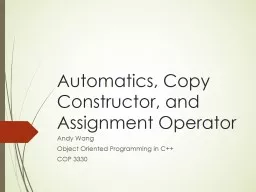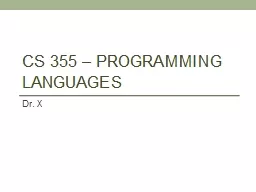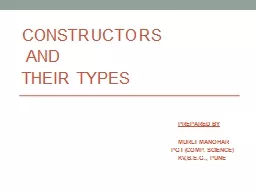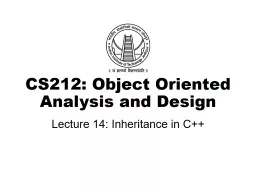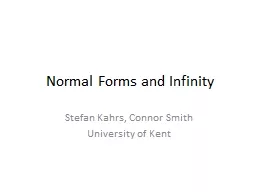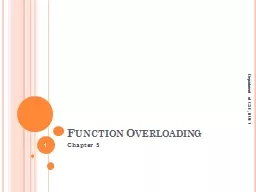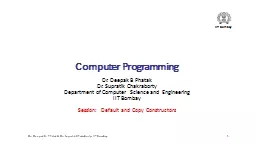PPT-Automatics, Copy Constructor, and Assignment Operator
Author : alida-meadow | Published Date : 2018-03-07
Andy Wang Object Oriented Programming in C COP 3330 Automatic Functions In C some default functions are automatically built Constructor if you dont provide one
Presentation Embed Code
Download Presentation
Download Presentation The PPT/PDF document "Automatics, Copy Constructor, and Assign..." is the property of its rightful owner. Permission is granted to download and print the materials on this website for personal, non-commercial use only, and to display it on your personal computer provided you do not modify the materials and that you retain all copyright notices contained in the materials. By downloading content from our website, you accept the terms of this agreement.
Automatics, Copy Constructor, and Assignment Operator: Transcript
Download Rules Of Document
"Automatics, Copy Constructor, and Assignment Operator"The content belongs to its owner. You may download and print it for personal use, without modification, and keep all copyright notices. By downloading, you agree to these terms.
Related Documents

